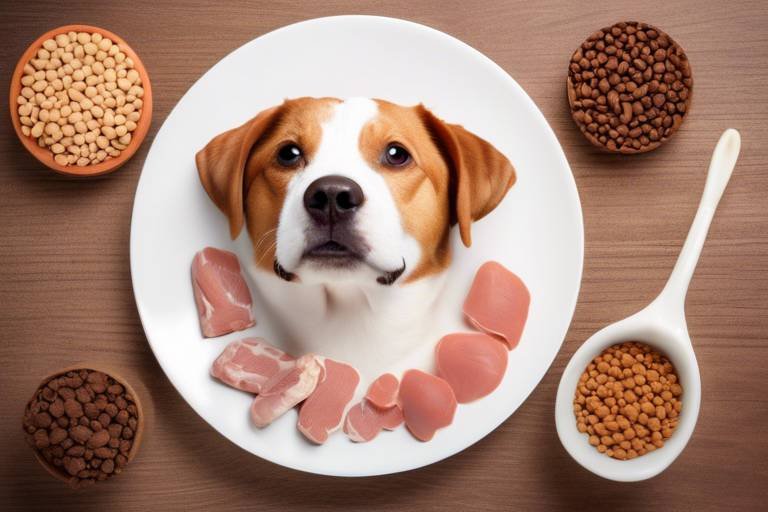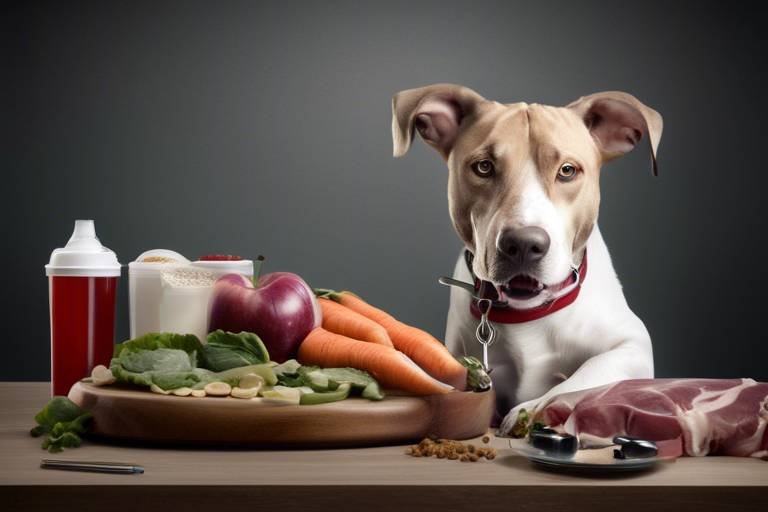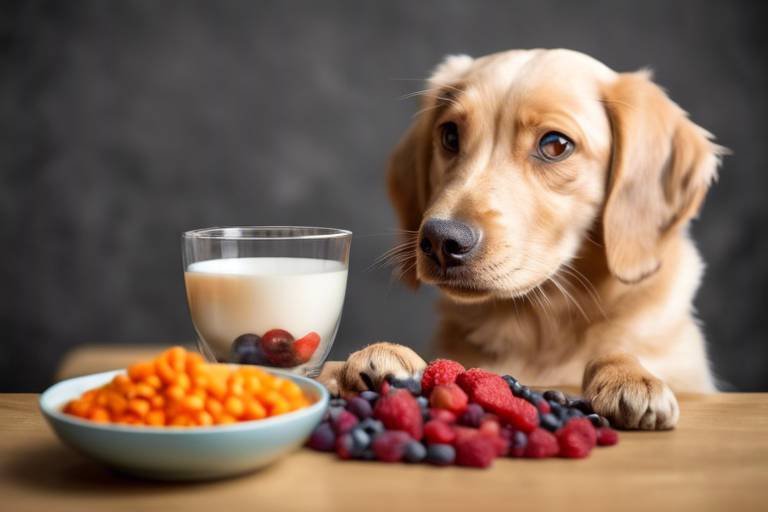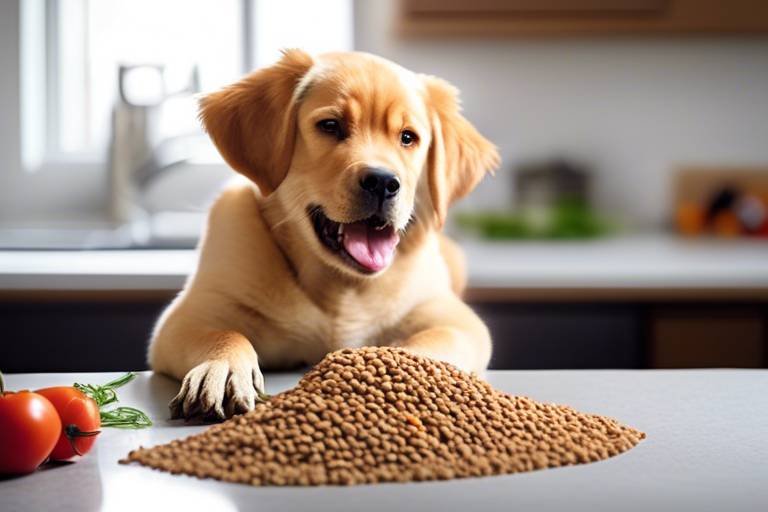The Benefits of High-Quality Protein Sources for Pets
When it comes to our beloved furry companions, their health and happiness are paramount. One of the most critical aspects of pet nutrition is high-quality protein sources. Just like us, pets require protein to thrive, but not all proteins are created equal. In this article, we will explore the importance of incorporating superior protein sources into your pet's diet, the various types of proteins available, and how they contribute to your pet's overall health and well-being. After all, wouldn't you want to give your pet the best chance at a long, vibrant life?
Protein quality is a term that refers to how well a protein source can be utilized by your pet's body. It's not just about the quantity of protein; it's about the quality as well. Several factors influence protein quality, including the amino acid profile, the digestibility of the protein, and the source of the protein itself. For instance, animal-based proteins tend to have a complete amino acid profile, meaning they contain all the essential amino acids that pets need. On the other hand, some plant-based proteins may lack one or more of these essential amino acids, making them less effective for your pet's nutritional needs.
Animal-based proteins are often considered the gold standard in pet nutrition. These proteins are not only rich in essential amino acids but also come packed with vital nutrients that are crucial for your pet's health. By incorporating animal proteins into your pet's diet, you can unlock numerous health benefits, including:
- Improved Muscle Development: High-quality proteins support muscle growth and maintenance.
- Enhanced Immune Function: Proteins play a vital role in bolstering your pet's immune system.
- Better Digestion: Animal proteins are generally easier for pets to digest compared to plant proteins.
Amino acids are the building blocks of proteins, and they play a significant role in various bodily functions. Pets require a mix of essential and non-essential amino acids for optimal health. Essential amino acids cannot be synthesized by the body and must be obtained from the diet. Some of the essential amino acids for pets include:
- Arginine
- Taurine
- Lysine
- Threonine
By ensuring your pet's diet is rich in these essential amino acids, you set them up for success in terms of growth, energy, and overall health.
High-quality proteins are essential for muscle growth and maintenance in pets. Just like humans, pets need protein to build and repair tissues. Adequate protein intake contributes to strong muscles and physical fitness, helping your pet stay active and energetic. Think of protein as the fuel that powers your pet's engine—without it, they may feel sluggish and less inclined to play or exercise.
Proteins also play a vital role in immune function. A strong immune system is crucial for keeping pets healthy and resilient against illnesses. High-quality protein sources can enhance your pet's immune response, helping them fend off infections and diseases. It's like giving your pet a shield made of the best materials—one that can withstand the test of time and keep them safe!
While animal proteins are often preferred, plant-based proteins can also be beneficial when included in a balanced pet diet. They can provide additional nutrients and fiber, which are essential for digestive health. However, it's important to ensure that the plant proteins complement animal proteins to create a complete amino acid profile. Some examples of plant-based protein sources include:
- Peas
- Chickpeas
- Potatoes
Incorporating these plant-based options can diversify your pet's diet and enhance their overall nutritional intake.
Selecting high-quality protein sources is essential for your pet's health. Here are some tips on how to choose the best protein options for your furry friends:
Understanding pet food labels is crucial for identifying protein quality. Look for foods that list specific animal proteins (like chicken, beef, or fish) as the first ingredient. Avoid foods that use vague terms like "meat by-products" or "animal meal," as these can be lower in quality.
Veterinarians can provide valuable insights into your pet's dietary needs and help you choose the right protein sources. They can recommend specific brands or formulations tailored to your pet's age, size, and health status. Consider them your trusted advisor in the journey to optimal pet nutrition.
1. How much protein does my pet need?
The protein requirement varies based on your pet's age, activity level, and health status. Generally, adult dogs require about 18-25% protein, while cats need around 26-30%.
2. Are plant-based proteins sufficient for my pet?
While plant-based proteins can supplement your pet's diet, they should not be the sole protein source. A combination of animal and plant proteins is ideal for a balanced diet.
3. How can I ensure my pet is getting high-quality protein?
Always read pet food labels carefully, and consult with your veterinarian to select the best brands and formulations that meet your pet's nutritional needs.
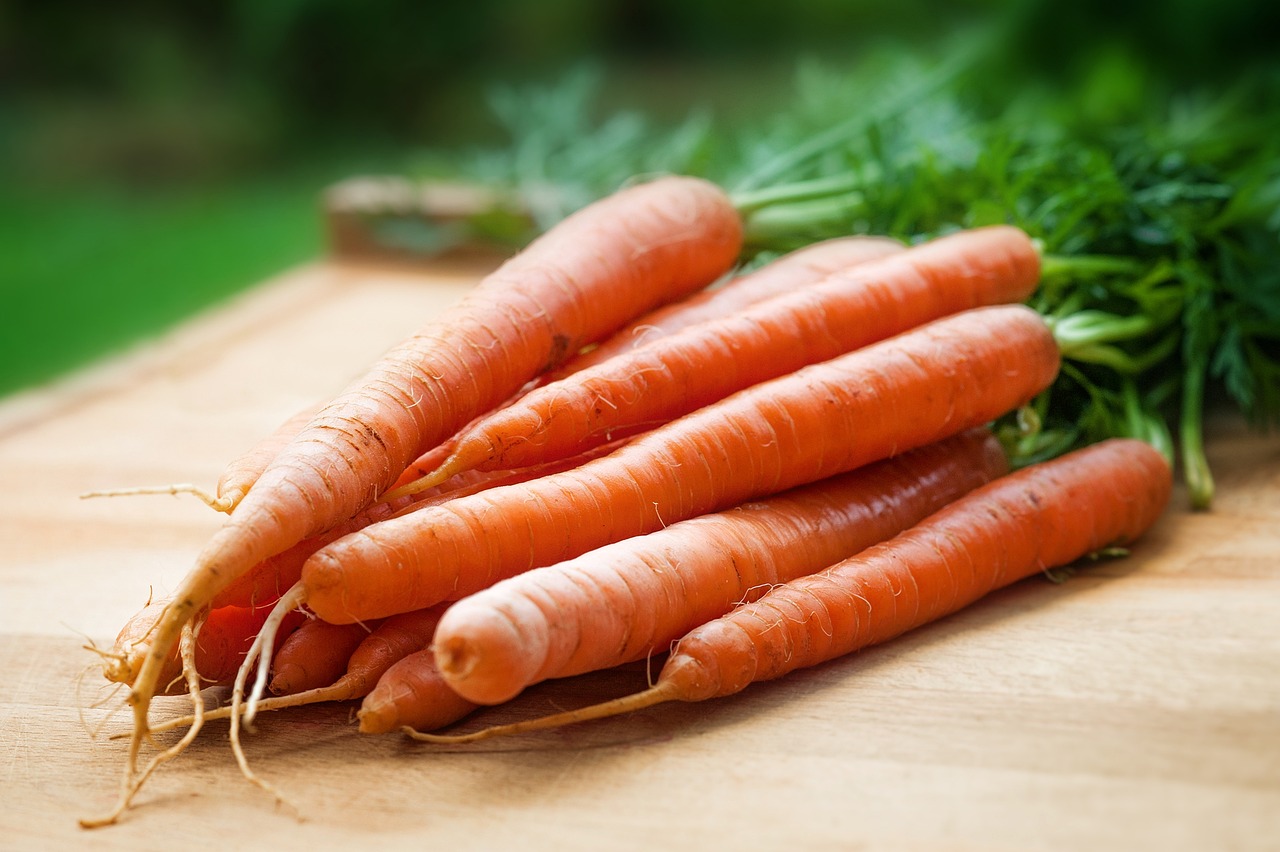
Understanding Protein Quality
When it comes to our beloved pets, protein quality is not just a buzzword; it’s the foundation of their health and vitality. Imagine protein as a building block—much like bricks in a house. If you use high-quality bricks, your house stands strong; if not, it might crumble under pressure. Similarly, the quality of protein in your pet's diet determines how well their body can utilize the nutrients consumed.
So, what exactly contributes to high-quality protein sources? It boils down to a few key factors:
- Amino Acid Profile: Not all proteins are created equal. High-quality proteins contain a complete range of essential amino acids that pets need for various bodily functions.
- Digestibility: The more digestible a protein is, the better your pet can absorb its nutrients. This means less waste and more energy for your furry friend!
- Bioavailability: This refers to how well the nutrients from the protein are absorbed and used by the body. High-quality proteins have higher bioavailability, ensuring your pet gets the most out of their meals.
Understanding these factors can help pet owners make informed decisions when selecting food. For instance, animal-based proteins, such as chicken, beef, and fish, generally offer a superior amino acid profile and digestibility compared to many plant-based proteins. However, this doesn’t mean that plant proteins lack value. In fact, they can complement animal proteins and provide additional nutrients, making them a viable option in a balanced diet.
To further illustrate the importance of protein quality, let’s take a look at a simple comparison:
| Protein Source | Amino Acid Profile | Digestibility | Bioavailability |
|---|---|---|---|
| Chicken | Complete | High | High |
| Beef | Complete | Moderate | High |
| Pea Protein | Incomplete | Moderate | Moderate |
| Brown Rice Protein | Incomplete | High | Low |
This table highlights how different protein sources stack up against each other in terms of essential amino acids, digestibility, and bioavailability. As a pet owner, this knowledge empowers you to make choices that will support your pet’s health in the long run.
In conclusion, understanding protein quality is essential for ensuring that our pets receive the nutrition they deserve. With the right information, you can select protein sources that not only fuel your pet’s body but also enhance their overall well-being. Remember, just like a well-built house, a healthy pet starts with a solid foundation of high-quality protein!

Benefits of Animal-Based Proteins
When it comes to your furry friends, animal-based proteins are often the MVPs of their diets. These proteins are not just about filling up their bowls; they are packed with essential nutrients that can significantly enhance your pet's overall health and vitality. Imagine giving your pet a delicious meal that not only satisfies their hunger but also fuels their body with the building blocks it needs to thrive. Sounds amazing, right? Well, that's the power of animal-based proteins!
One of the standout features of animal-based proteins is their complete amino acid profile. Unlike some plant proteins, which may lack certain essential amino acids, animal proteins provide a full spectrum of these vital nutrients. This means that your pet's body can utilize them more effectively, leading to better health outcomes. For instance, animal proteins are rich in amino acids like taurine and arginine, which are crucial for heart health, muscle function, and overall well-being.
Moreover, animal proteins are often more digestible for pets. This digestibility means that your pet can absorb more nutrients from their food, which translates to better energy levels and improved physical performance. Think of it like fueling a high-performance sports car with premium gasoline; it just runs better! In contrast, some plant-based proteins may not be as easily digestible, leading to less efficient nutrient absorption.
Another significant advantage of animal-based proteins is their role in muscle development and maintenance. Pets, especially active ones, require adequate protein to build and repair muscle tissues. High-quality animal proteins support this need, helping your pet maintain strong muscles, which is essential for their agility and overall fitness. If you want your pet to leap and play with enthusiasm, ensuring they get enough high-quality protein is a must!
Animal-based proteins also play a vital role in supporting your pet's immune system. Proteins are essential for the production of antibodies and other immune system components that help fend off illnesses. A diet rich in high-quality animal proteins can enhance your pet's immune response, making them more resilient against infections and diseases. It's like giving them a shield to protect them from the nasty bugs out there!
Incorporating animal-based proteins into your pet's diet can also improve their skin and coat health. Pets that consume high-quality protein sources often have shinier coats and healthier skin. This is because proteins help in the production of keratin and collagen, both of which are essential for maintaining skin elasticity and coat luster. So, if you want your pet to strut around with a shiny coat, focus on their protein intake!
In summary, the benefits of animal-based proteins are numerous and impactful. They offer a complete amino acid profile, better digestibility, support muscle development, enhance immune function, and promote healthy skin and coats. By prioritizing high-quality animal proteins in your pet's diet, you're not just feeding them; you're investing in their long-term health and happiness. Your furry companion deserves the best, and animal-based proteins can help you provide just that!
Amino Acids Essentials
When it comes to pet nutrition, amino acids are the unsung heroes that play a pivotal role in your furry friend's overall health. Think of amino acids as the tiny building blocks that construct the vast and intricate structure of life itself. Just like a house needs solid bricks to stand tall, your pet's body requires these essential components to function optimally. There are 20 different amino acids, but not all of them are created equal. Some are classified as essential, meaning that your pet's body cannot produce them and they must be obtained through their diet.
Essential amino acids include arginine, histidine, isoleucine, leucine, lysine, methionine, phenylalanine, threonine, tryptophan, and valine. Each of these amino acids has unique functions that contribute to various bodily processes. For example, lysine is critical for protein synthesis and immune function, while methionine plays a role in liver health and detoxification.
Incorporating high-quality protein sources rich in these essential amino acids into your pet's diet can lead to a myriad of health benefits. Just imagine your pet's body as a finely tuned machine; without the right fuel—those essential amino acids—the machine can't run effectively. This can lead to issues like poor growth, weakened immune response, and even muscle wasting. In fact, a deficiency in just one essential amino acid can have a cascading effect on your pet's health.
Moreover, amino acids are not just about building muscles; they are also crucial for the production of hormones, enzymes, and neurotransmitters. For instance, tryptophan is known for its role in producing serotonin, the "feel-good" hormone that can help regulate your pet's mood. Thus, by ensuring your pet receives a balanced intake of these amino acids, you're not only supporting their physical health but also their emotional well-being.
In summary, understanding the role of amino acids in your pet’s diet is essential for fostering a healthy and vibrant life. By choosing high-quality protein sources that are rich in these vital nutrients, you can help your pet thrive, ensuring they have the energy and vitality to enjoy all the adventures life has to offer.
- What are essential amino acids? Essential amino acids are those that the body cannot produce on its own and must be obtained through diet.
- Why are amino acids important for pets? They play a critical role in muscle development, immune function, and the production of hormones and enzymes.
- How can I ensure my pet is getting enough amino acids? Choose high-quality protein sources in their diet and consult with your veterinarian for tailored dietary advice.
Muscle Development
When it comes to our furry companions, is a crucial aspect of their overall health and well-being. Just like us, pets require a balanced diet rich in high-quality proteins to maintain strong muscles. Think of protein as the building blocks of your pet's body; without it, their muscles would be like a house built on sand—unstable and prone to collapse. High-quality proteins, particularly those from animal sources, provide the essential amino acids necessary for muscle growth, repair, and maintenance.
Imagine your pet as an athlete. Just as athletes need proper nutrition to perform at their best, your pet needs adequate protein to thrive. When they consume high-quality protein, their bodies can effectively convert it into muscle tissue. This is especially important for active pets who engage in regular exercise or play, as their muscles are constantly being broken down and rebuilt. Ensuring your pet receives sufficient protein helps them develop lean muscle mass, which contributes to their strength and stamina.
Furthermore, the type of protein matters. Animal-based proteins, such as chicken, beef, and fish, contain all the essential amino acids in the right proportions. These amino acids are vital for muscle synthesis, making them far superior to many plant-based proteins. While some pet owners may consider vegetarian or vegan diets for their pets, it’s important to note that these options often lack certain essential amino acids that are crucial for muscle development. If you do choose to incorporate plant-based proteins, be sure to pair them carefully to create a complete amino acid profile.
To illustrate the impact of protein on muscle health, let’s take a look at a simple comparison:
| Protein Source | Amino Acid Profile | Muscle Development Benefits |
|---|---|---|
| Chicken | Complete | Supports muscle growth and repair |
| Beef | Complete | Enhances strength and endurance |
| Fish | Complete | Promotes lean muscle mass |
| Lentils | Incomplete | May require pairing with grains |
As you can see from the table, animal proteins provide a complete amino acid profile, which is essential for optimal muscle development. On the other hand, while plant proteins can be beneficial, they often need to be combined with other sources to ensure your pet gets all the necessary nutrients.
In conclusion, prioritizing high-quality protein sources in your pet's diet is not just about feeding them; it's about investing in their health. By supporting muscle development through proper nutrition, you help your furry friend stay active, playful, and full of life. Remember, a strong pet is a happy pet!
- How much protein does my pet need? The protein requirement varies by species, age, and activity level. Consult with your veterinarian for personalized recommendations.
- Can I feed my pet a vegetarian diet? While some pets can thrive on a vegetarian diet, it's essential to ensure they receive all essential amino acids. Always consult a veterinarian before making significant dietary changes.
- What are some signs of protein deficiency in pets? Signs may include lethargy, poor coat condition, muscle wasting, and a weakened immune system.
Immune System Support
When it comes to keeping our furry friends healthy, the importance of a strong immune system cannot be overstated. Just like humans, pets need a robust immune response to fend off illnesses and infections. High-quality protein sources play a pivotal role in bolstering this defense mechanism. But how exactly do proteins contribute to immune system support? Well, let’s dive into it!
Proteins, particularly those derived from animal sources, are rich in essential amino acids that are crucial for the production of antibodies. These antibodies are proteins themselves and are vital for identifying and neutralizing pathogens like bacteria and viruses. Imagine your pet's immune system as a fortress, and proteins are the skilled builders constructing strong walls and watchtowers to protect against invaders. Without sufficient high-quality protein, that fortress could become vulnerable.
Moreover, proteins assist in the production of cytokines, which are signaling molecules that help regulate immunity and inflammation. An adequate intake of quality protein helps ensure that your pet's body can produce these vital substances, which work to keep their immune system in tip-top shape. Think of cytokines as the communication system within the fortress, ensuring all defenses are coordinated and ready to respond to threats.
Incorporating high-quality animal-based proteins into your pet's diet can lead to numerous benefits for their immune system:
- Enhanced Antibody Production: Quality proteins provide the building blocks necessary for creating antibodies that fight off infections.
- Improved Recovery: Pets that consume adequate protein tend to recover faster from illnesses and surgeries, thanks to a more effective immune response.
- Reduced Inflammation: Proteins can help modulate inflammatory responses, which is crucial for maintaining overall health.
It's also worth noting that a diet lacking in sufficient protein can lead to a weakened immune system, making pets more susceptible to diseases. Just as a castle needs a strong foundation, your pet's health relies on the quality of the nutrients they consume. So, when choosing food for your pet, always prioritize high-quality protein sources to keep their immune system fortified and ready to tackle any health challenges that may come their way!
Q: How much protein does my pet need?
A: The amount of protein your pet needs depends on their age, size, and activity level. Generally, adult dogs require about 18-25% protein in their diet, while cats need around 26-30% due to their higher protein needs.
Q: Can my pet get enough protein from plant-based sources?
A: While some plant-based proteins can be beneficial, they often lack certain essential amino acids that animal proteins provide. It’s best to consult with a veterinarian to ensure a balanced diet.
Q: What are some high-quality protein sources for pets?
A: High-quality protein sources include chicken, beef, fish, eggs, and certain dairy products. Always check the ingredient list on pet food labels to ensure protein is the primary ingredient.
Plant-Based Proteins: A Viable Option?
When it comes to pet nutrition, the conversation often revolves around animal-based proteins, and understandably so. These proteins are rich in essential amino acids that contribute to your pet's health and vitality. However, let's not overlook the potential of plant-based proteins. You might be wondering, can plants really provide the nutritional punch that our furry friends need? The answer is a resounding yes! While animal proteins are indeed the gold standard, plant proteins can serve as a valuable complement, offering a variety of benefits.
First off, it's important to note that plant-based proteins can provide a range of nutrients that are beneficial for your pet’s overall well-being. For instance, legumes, peas, and certain grains are not only good sources of protein but also packed with fiber, vitamins, and minerals. This can aid in digestion and help maintain a healthy weight. Think of plant proteins as the multivitamins of the protein world—while they might not replace the need for animal proteins, they certainly add a beneficial layer to your pet's diet.
Moreover, incorporating plant-based proteins can be particularly beneficial for pets with certain dietary restrictions or allergies. Some pets may have sensitivities to specific animal proteins, making it challenging to find suitable food options. In these cases, plant-based proteins can provide a much-needed alternative. For example,
- Chickpeas - A great source of protein and fiber.
- Quinoa - A complete protein that contains all nine essential amino acids.
- Brown Rice - Provides energy and is easy on the stomach.
However, it’s essential to remember that not all plant proteins are created equal. Some may lack certain essential amino acids that are crucial for your pet’s health. Therefore, it’s vital to choose high-quality plant proteins that can work synergistically with animal proteins. A balanced diet that includes both types can lead to improved health outcomes for your pet.
In conclusion, while animal-based proteins should remain a significant part of your pet’s diet, incorporating plant-based proteins can offer a myriad of benefits. They not only enhance the nutritional value but also cater to pets with specific dietary needs. So, the next time you’re shopping for pet food, consider looking for options that include a mix of both animal and plant proteins. Your furry friend will thank you for it!
Q: Can I feed my pet a diet that is solely plant-based?
A: While some pets can thrive on a vegetarian or vegan diet, it's crucial to ensure that all their nutritional needs are met, particularly essential amino acids. Consulting with a veterinarian is highly recommended.
Q: What are some good sources of plant-based protein for pets?
A: Some excellent sources include legumes, quinoa, brown rice, and certain vegetables. Always check with your vet before making significant dietary changes.
Q: Are there any risks associated with feeding my pet plant-based proteins?
A: Yes, some pets may have trouble digesting certain plant proteins. It's important to monitor your pet for any adverse reactions and consult with a veterinarian if you have concerns.
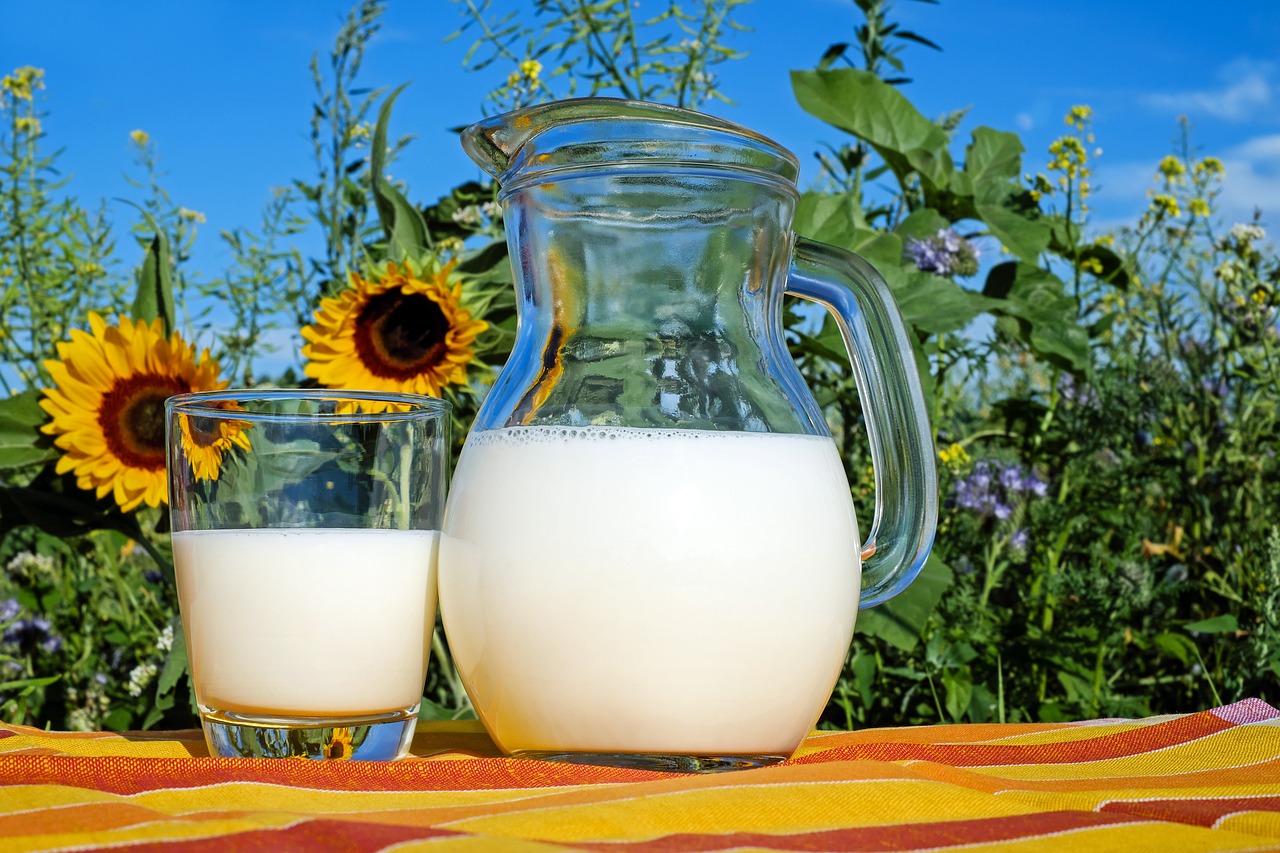
Choosing the Right Protein Source
When it comes to selecting the right protein source for your beloved pet, the choices can feel overwhelming. With so many options available, how do you know which ones are best? The key lies in understanding what makes a protein source high-quality and how it can impact your pet's health. First and foremost, look for proteins that are animal-based, as they typically provide a complete amino acid profile that pets need for their overall well-being. Ingredients like chicken, beef, fish, and lamb are not only delicious but also packed with essential nutrients. But wait, there's more! Not all proteins are created equal, so it's essential to read labels carefully.
When examining pet food labels, focus on the first few ingredients listed. The higher up an ingredient is on the list, the more of it is present in the food. Ideally, you want to see a named protein source at the top, such as "chicken meal" or "salmon." Avoid vague terms like "meat by-products," which can indicate lower-quality sources. Additionally, be on the lookout for the presence of fillers like corn and soy, which can dilute the protein content and offer minimal nutritional benefits. Quality over quantity is the mantra here; your pet deserves the best!
Another critical aspect to consider is your pet's specific dietary needs. Factors such as age, breed, and activity level can influence their protein requirements. For instance, an active dog may need more protein to support muscle repair and energy, while a senior pet might benefit from a diet that focuses more on digestibility and overall wellness. Consulting with a veterinarian can provide valuable insights tailored to your pet's unique needs. They can help you navigate the plethora of options and recommend the most suitable protein sources based on your pet's health status.
In addition to animal-based proteins, don't overlook the potential benefits of plant-based proteins. While they may not offer the same complete amino acid profile, they can still contribute to a balanced diet when combined with other protein sources. Ingredients like peas, lentils, and quinoa can provide fiber and essential nutrients, complementing animal proteins effectively. Just remember, if you're considering a plant-based diet for your pet, it's crucial to ensure that their nutritional needs are met.
Finally, consider the source of your pet's food. Brands that prioritize high-quality ingredients and transparency in their sourcing practices are often more reliable. Look for products that are grain-free or made with whole grains, as these can provide additional health benefits. Remember, the goal is to provide your furry friend with the best possible nutrition, so take the time to research and choose wisely!
- What are the signs of a high-quality protein source? Look for named animal proteins as the first ingredient, minimal fillers, and a balanced amino acid profile.
- Can I mix animal and plant proteins? Yes! Combining both can provide a more balanced diet, but ensure that your pet's nutritional needs are met.
- How can I tell if my pet is getting enough protein? Signs include healthy skin and coat, strong muscles, and overall vitality. Consult your vet for personalized advice.
Reading Pet Food Labels
When it comes to selecting the best food for your furry friend, is an essential skill every pet owner should master. Just like how we scrutinize the ingredients in our own meals, understanding what goes into your pet's food can make a world of difference in their health and well-being. Have you ever picked up a bag of pet food and felt overwhelmed by the jargon? You're not alone! Let's break it down together.
First off, the ingredient list is your starting point. Ingredients are typically listed in descending order by weight, meaning the first few items are the most significant components of the food. Look for high-quality protein sources like chicken, beef, or fish at the top of the list. If you see vague terms like "meat by-products," it might raise a few red flags. You want to be sure that your pet is getting the best possible nutrition.
Next, pay attention to the protein content. Many pet owners assume that more protein is always better, but that's not the case. The quality of the protein is what really matters. A food that contains a high percentage of low-quality protein may not provide your pet with the essential amino acids they need. A good rule of thumb is to look for a protein content that is appropriate for your pet's age, size, and activity level.
Don't forget to check for additives and preservatives. While some additives are necessary for maintaining freshness and flavor, others can be harmful in the long run. Ideally, you want to see minimal artificial ingredients on the label. Instead, look for natural preservatives like vitamin E or rosemary extract, which are safer alternatives.
Moreover, be aware of the guaranteed analysis section, which provides information on the minimum percentages of protein and fat, as well as the maximum percentages of fiber and moisture. This section gives you a clear picture of the food's nutritional value. For instance, if the analysis shows a protein percentage that seems too low, it may not be suitable for your pet's dietary needs.
To help you better understand what to look for, here’s a quick table summarizing key components to check on pet food labels:
| Component | What to Look For | Red Flags |
|---|---|---|
| Ingredients | High-quality protein sources listed first | Vague terms like "meat by-products" |
| Protein Content | Appropriate for your pet's needs | Low-quality protein sources |
| Additives | Natural preservatives | Artificial flavors and colors |
| Guaranteed Analysis | Minimum protein and fat percentages | Very low protein content |
Finally, don’t hesitate to consult with your veterinarian regarding any specific dietary requirements your pet may have. They can guide you on the best options based on your pet's health status, age, and lifestyle. Remember, just like us, our pets thrive on a balanced diet tailored to their unique needs!
- What should I look for first on a pet food label? Start with the ingredient list to identify high-quality protein sources.
- Is high protein always better for my pet? Not necessarily. Quality matters more than quantity when it comes to protein.
- Can I trust pet food brands? Research brands and look for those with transparent ingredient sourcing and positive reviews.
Consulting with Veterinarians
When it comes to your pet's nutrition, consulting with a veterinarian is not just a good idea; it's essential! Think of your vet as your pet's personal nutritionist, equipped with the knowledge to help you navigate the often confusing world of pet food. After all, just like humans, pets have specific dietary needs that can vary based on their age, breed, size, and health conditions. So, why leave their nutrition to chance?
Veterinarians can provide personalized recommendations tailored to your pet's unique needs. They can help you understand which protein sources are best suited for your furry friend, ensuring they get the right balance of essential nutrients. For instance, if your dog is particularly active, they may require a higher protein intake to support their energy levels and muscle maintenance. On the other hand, a senior cat might benefit from a diet that includes easily digestible proteins to support their aging system.
Moreover, vets can help you decipher pet food labels, which can often be misleading. You might find yourself staring at a label packed with jargon, wondering what it all means. Your veterinarian can clarify terms and ingredients, guiding you to high-quality protein sources that will provide the best health benefits for your pet. They can also inform you about any potential allergens that might be lurking in certain foods, helping you avoid unnecessary health issues.
In addition to dietary recommendations, your vet can also suggest specific brands or formulations that have been proven to deliver high-quality proteins. This is especially important if your pet has specific health concerns, such as allergies or digestive issues, which may require a specialized diet. Remember, investing time in a consultation can save you from costly health problems down the line!
It's a good practice to schedule regular check-ups with your veterinarian, not just for vaccinations and health assessments but also to discuss your pet's diet. As your pet ages or their activity levels change, their dietary needs may shift too. Keeping an open line of communication with your vet ensures that you can adapt their diet accordingly, maintaining their health and vitality.
In summary, consulting with a veterinarian is a crucial step in choosing the right protein sources for your pet. Their expertise can guide you in making informed decisions that promote your pet's overall health and well-being, ensuring they live a long, happy life. So, don’t hesitate to reach out to your vet today!
- How often should I consult my veterinarian about my pet's diet?
It's recommended to check in with your vet at least once a year, or more frequently if your pet has special dietary needs. - Can I switch my pet's protein source without consulting a vet?
While it’s possible, it’s best to consult your vet first to avoid digestive issues or nutritional deficiencies. - What are some signs that my pet may need a diet change?
Look for changes in weight, energy levels, coat condition, or digestive health; these may indicate a need for dietary adjustments.
Frequently Asked Questions
- What is the importance of high-quality protein in my pet's diet?
High-quality protein is essential for your pet's overall health and well-being. It provides the necessary amino acids that support muscle development, immune function, and energy levels. Just like humans, pets thrive on a diet rich in quality proteins, which helps them stay active and healthy.
- How can I identify high-quality protein sources in pet food?
To identify high-quality protein sources, always read the pet food labels carefully. Look for specific animal proteins listed as the first ingredient, such as chicken, beef, or fish. Avoid products that use vague terms like "meat by-products" or "meat meal," as these can indicate lower-quality proteins.
- Are plant-based proteins a good option for my pet?
Plant-based proteins can be a viable option, especially for pets with specific dietary needs or allergies. However, they may not provide all the essential amino acids that animal proteins do. It's important to ensure that a balanced diet is maintained, so consult your veterinarian if you're considering a plant-based diet for your pet.
- How do I know if my pet is getting enough protein?
Signs that your pet may not be getting enough protein include weight loss, poor coat condition, and decreased energy levels. Regular veterinary check-ups can help assess your pet's nutritional needs, and they can provide guidance on how much protein is appropriate based on your pet's age, size, and activity level.
- Can I mix different protein sources in my pet's diet?
Yes, mixing different protein sources can be beneficial and provide a variety of nutrients. However, make sure that the total protein intake meets your pet's needs. It's always a good idea to consult with your veterinarian to ensure that the combination is balanced and suitable for your pet's health.
- What role do amino acids play in my pet's health?
Amino acids are the building blocks of proteins and are crucial for various bodily functions, including muscle growth, immune response, and hormone production. Some amino acids are essential, meaning pets need to obtain them from their diet, making high-quality protein sources vital for their health.
- Is it safe to feed my pet a high-protein diet?
A high-protein diet can be safe for most pets, especially active ones, but it’s important to tailor the protein levels to your pet's specific needs. Factors like age, breed, and health status play a role in determining the right protein intake. Always consult with a veterinarian before making significant dietary changes.

